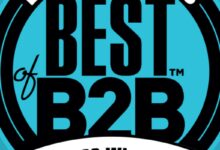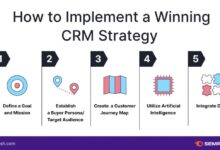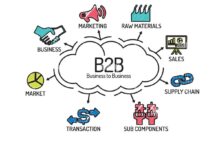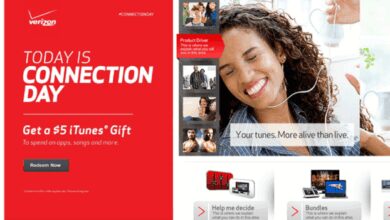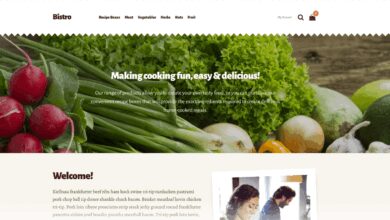Crm software for small business: 5 Best CRM Software for Small Business in 2024: Ultimate Power Guide
Running a small business? You need smart tools. A powerful CRM software for small business can transform how you manage customers, boost sales, and grow faster—without breaking the bank.
Why CRM Software for Small Business Is a Game-Changer
?w=1200)
Small businesses face unique challenges: limited budgets, tight teams, and the constant need to do more with less. That’s where CRM software for small business steps in—not as a luxury, but as a necessity. Customer Relationship Management (CRM) systems help organize customer data, streamline communication, and improve sales efficiency.
Boosting Sales Efficiency
CRM software automates repetitive tasks like data entry, follow-up emails, and appointment scheduling. This frees up time for your team to focus on closing deals instead of chasing paperwork. According to Salesforce, companies using CRM see a 29% increase in sales performance.
- Automated lead tracking and assignment
- Real-time sales pipeline visibility
- Customizable sales workflows
With a CRM, every lead is tracked from first contact to final sale, reducing drop-offs and increasing conversion rates.
Enhancing Customer Relationships
Strong customer relationships are the backbone of any small business. CRM software for small business stores every interaction—emails, calls, purchases, support tickets—in one central location. This means your team can provide personalized service every time.
“The best CRM doesn’t just store data—it helps you understand your customers better.” — HubSpot Blog
Imagine knowing a customer’s purchase history before they even call. That level of insight builds trust and loyalty, turning one-time buyers into repeat clients.
Top 5 CRM Software for Small Business in 2024
Choosing the right CRM can be overwhelming. We’ve tested and analyzed the top platforms to bring you the five best CRM software for small business this year. Each offers affordability, scalability, and powerful features tailored to small teams.
1. HubSpot CRM
HubSpot CRM is widely regarded as the best free CRM for small businesses. It’s intuitive, feature-rich, and integrates seamlessly with marketing, sales, and service tools.
- Free Forever Plan: Includes contact management, email tracking, deal pipelines, and live chat
- Integrations: Works with Gmail, Outlook, Slack, Shopify, and over 1,000 apps via HubSpot Marketplace
- Automation: Set up workflows for email sequences, task assignments, and follow-ups
HubSpot’s user-friendly interface makes onboarding quick, even for non-tech teams. As your business grows, you can upgrade to paid tiers for advanced features like reporting and custom dashboards. Learn more at HubSpot CRM.
2. Zoho CRM
Zoho CRM is a powerhouse for small businesses looking for deep customization and AI-driven insights. Its AI assistant, Zia, predicts deal closures, suggests next steps, and automates routine tasks.
- AI-Powered Automation: Zia helps prioritize leads and reduce manual work
- Customizable Modules: Adapt the CRM to sales, marketing, or support workflows
- Mobile App: Full functionality on iOS and Android devices
Zoho CRM starts at $14/user/month and offers a 15-day free trial. It’s ideal for businesses that want scalability without complexity. Visit Zoho CRM to explore plans.
3. Salesforce Essentials
Salesforce is the world’s #1 CRM, and Essentials is its entry-level solution designed specifically for small businesses with up to 10 users.
- Cloud-Based Platform: Access your CRM from anywhere
- Pre-Built Sales Processes: Ready-to-use workflows for common sales cycles
- Integration with Email & Calendar: Syncs with Gmail and Outlook
Priced at $25/user/month, Salesforce Essentials delivers enterprise-grade power in a small package. It’s perfect for growing teams that plan to scale. Check it out at Salesforce Essentials.
4. Freshsales (by Freshworks)
Freshsales stands out for its modern interface and built-in phone and email capabilities. It’s designed for sales teams that want everything in one place.
- Integrated Phone & Email: Make calls and send emails directly from the CRM
- Visual Deal Pipeline: Drag-and-drop interface for managing deals
- Lead Scoring: Automatically rank leads based on engagement
Freshsales starts at $15/user/month and includes a free plan for up to 3 users. Its AI-powered insights help identify high-value leads early. Learn more at Freshsales CRM.
5. Insightly
Insightly is ideal for small businesses that need project management alongside CRM functionality. It bridges the gap between sales and operations.
- Project & Task Management: Track projects linked to customer accounts
- Workflow Automation: Automate lead routing and follow-up tasks
- Customer Lifecycle Tracking: From lead to long-term client
Priced from $29/user/month, Insightly is slightly pricier but offers robust integration with G Suite, Microsoft 365, and Zapier. Visit Insightly for a free trial.
Key Features to Look for in CRM Software for Small Business
Not all CRM systems are created equal. When evaluating CRM software for small business, focus on features that deliver real value without overwhelming your team.
Contact & Lead Management
The core of any CRM is organizing customer data. Look for tools that automatically capture leads from web forms, emails, and social media. The best CRM software for small business lets you segment contacts by behavior, location, or purchase history.
- Automatic contact enrichment (e.g., pulling LinkedIn data)
- Duplicate detection and merging
- Custom fields for storing unique business data
HubSpot and Zoho excel here, offering smart contact merging and real-time updates.
Sales Pipeline & Deal Tracking
A visual sales pipeline helps you see where each deal stands. The best CRM platforms allow customization of stages (e.g., Prospecting, Demo, Negotiation, Closed-Won).
- Drag-and-drop deal movement
- Forecasting tools based on pipeline data
- Deal insights (e.g., average time in each stage)
Salesforce Essentials and Freshsales offer intuitive pipeline views that help managers spot bottlenecks and coach reps effectively.
Automation & Workflow Tools
Automation is a force multiplier for small teams. CRM software for small business should automate repetitive tasks like:
- Sending follow-up emails after a lead download
- Assigning leads to sales reps based on territory or workload
- Creating tasks when a deal moves to a new stage
Zoho CRM and Insightly lead in workflow automation, allowing complex rules without coding. For example, if a lead opens three emails in a week, they’re automatically marked as “hot” and assigned to a senior rep.
How to Choose the Right CRM Software for Small Business
Selecting the right CRM isn’t just about features—it’s about fit. A tool that works for a 5-person startup might not suit a 20-person agency. Here’s a step-by-step guide to making the right choice.
Assess Your Business Needs
Start by asking: What are your biggest pain points? Is it losing track of leads? Poor follow-up? Inconsistent customer service? Map these to CRM capabilities.
- If sales tracking is weak → Prioritize pipeline visibility
- If marketing is disconnected → Look for CRM with email marketing tools
- If customer service is slow → Choose a CRM with ticketing and knowledge base features
For example, a real estate agency might need appointment scheduling and property tracking, while an e-commerce store needs order history and cart abandonment alerts.
Consider Ease of Use
The most powerful CRM is useless if your team won’t use it. Look for platforms with clean interfaces, mobile access, and minimal training requirements.
“User adoption is the #1 reason CRM projects fail.” — Nucleus Research
HubSpot CRM wins here with its intuitive design. Most users can navigate it within an hour. Zoho CRM, while powerful, has a steeper learning curve.
Check Integration Capabilities
Your CRM should connect with tools you already use—email, calendar, accounting, e-commerce, and marketing platforms.
- Gmail/Outlook sync
- QuickBooks or Xero integration
- Shopify, WooCommerce, or Magento sync
- Zapier or Make.com for custom automations
Freshsales and Insightly offer strong native integrations, reducing the need for third-party connectors.
Implementation Tips for CRM Software for Small Business
Rolling out a new CRM can be disruptive. Follow these best practices to ensure a smooth transition and high user adoption.
Start with a Pilot Team
Don’t roll out the CRM to everyone at once. Start with a small team—like your sales or customer service department—and gather feedback.
- Test data import and cleanup
- Train users with real-world scenarios
- Adjust workflows based on feedback
This phased approach reduces resistance and allows you to fix issues before scaling.
Data Migration & Cleanup
Most small businesses have customer data scattered across spreadsheets, email inboxes, and sticky notes. Before importing into your CRM, clean the data:
- Remove duplicates
- Standardize formats (e.g., phone numbers, addresses)
- Verify email addresses and contact info
Tools like Import.io or Talend can help automate data extraction and cleaning.
Train Your Team Effectively
Training isn’t a one-time event. Provide ongoing support through:
- Short video tutorials
- Cheat sheets for common tasks
- Weekly Q&A sessions
Encourage team members to share tips and shortcuts. Gamify adoption by recognizing top users each month.
Common Mistakes to Avoid When Using CRM Software for Small Business
Even the best CRM software for small business can fail if used incorrectly. Avoid these common pitfalls.
Over-Customizing Too Early
It’s tempting to build complex workflows and custom fields from day one. But this can slow down adoption and make the system hard to maintain.
Start simple. Use default settings and gradually add customizations as you learn what works. As CIO.com notes, “Simplicity drives adoption.”
Ignoring Data Hygiene
A CRM is only as good as the data it contains. If your team skips updating records or enters incomplete info, the system becomes unreliable.
- Set clear data entry rules (e.g., all leads must have a source)
- Run monthly audits to remove stale contacts
- Use automation to fill in missing data (e.g., company info from domain)
Regular data hygiene keeps your CRM accurate and trustworthy.
Not Measuring ROI
How do you know if your CRM is working? Define success metrics early:
- Sales cycle length
- Conversion rates
- Customer retention rate
- Time saved per rep per week
Compare these metrics before and after CRM implementation to prove ROI to stakeholders.
Future Trends in CRM Software for Small Business
CRM technology is evolving fast. Small businesses that stay ahead of trends gain a competitive edge.
AI and Predictive Analytics
AI is no longer just for big corporations. Modern CRM software for small business uses AI to:
- Predict which leads are most likely to convert
- Suggest the best time to follow up
- Automatically categorize emails and tasks
Zoho Zia and Salesforce Einstein are leading this shift, offering AI features at affordable prices.
Mobile-First CRM Design
With more teams working remotely, mobile access is essential. The next generation of CRM apps offers full functionality on smartphones, including voice commands and offline mode.
Freshsales and HubSpot have invested heavily in mobile UX, allowing reps to update deals, log calls, and send emails from the field.
Integration with Communication Platforms
CRMs are merging with tools like Slack, Microsoft Teams, and WhatsApp. Instead of switching apps, you’ll manage customer interactions directly within your chat platform.
For example, HubSpot’s Slack integration lets you receive deal updates and assign tasks without leaving your chat window.
What is CRM software for small business?
CRM software for small business is a tool that helps small companies manage customer interactions, track sales leads, automate marketing, and improve customer service—all in one centralized system.
Is there a free CRM software for small business?
Yes, several CRM platforms offer free plans. HubSpot CRM is the most popular free option, including contact management, email tracking, and deal pipelines for unlimited users.
How much does CRM software for small business cost?
Prices vary, but most start between $10–$30 per user per month. Some, like HubSpot, offer free plans. Others, like Salesforce Essentials, charge $25/user/month with no free tier.
Can CRM software help with marketing?
Absolutely. Many CRM systems include email marketing, campaign tracking, and lead nurturing tools. HubSpot and Zoho CRM are especially strong in marketing automation.
How long does it take to implement a CRM?
For small businesses, implementation typically takes 1–4 weeks. This includes data migration, team training, and workflow setup. Using a phased rollout can speed up adoption.
Choosing the right CRM software for small business can transform how you grow and serve customers. From HubSpot’s free plan to Salesforce’s enterprise power, there’s a solution for every budget and need. Focus on ease of use, essential features, and integration with your existing tools. Avoid common mistakes like over-customization and poor data hygiene. As AI and mobile capabilities evolve, today’s CRM is more powerful than ever. Invest wisely, train your team, and measure results—your business will reap the rewards for years to come.
Further Reading:
